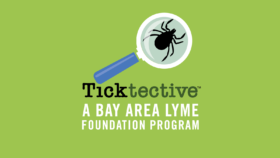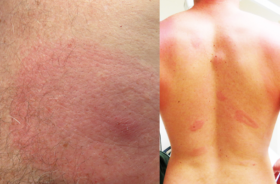– Wendy Adams, Research Grant Director, Bay Area Lyme Foundation
Bay Area Lyme has a goal to leverage the entrepreneurial spirit and innovation of Silicon Valley in order to catalyze novel projects around the country. Our belief is that the application of cutting-edge technologies will have a dramatic impact on making Lyme disease easy to diagnose and simple to cure. We collaborate with world-class scientists focused on Lyme projects which leverage knowledge from other fields of medicine and research. We also prioritize engagement with the investment and biotech communities so that breakthroughs in the laboratory can be translated more quickly to patients. Since our inception, our scientific research funding priorities have been focused on supporting diagnostic and therapeutic projects.
It is impossible to cure Lyme disease in every case without understanding how to diagnose it accurately. There are many reasons for this disease being difficult to identify—ticks are tiny, the EM skin rash is often misdiagnosed and symptoms overlap with other acute diseases like influenza. Most importantly, the widely used two tier diagnostic testing required for Lyme disease is currently the ELISA and Western Blot, which only detects the immune response (indirect detection) and not the pathogen itself. Because it can take at least 2-4 weeks for the body to generate antibodies, these tests have been shown to miss up to 70% of acute Lyme cases. These tests also do not detect other related Borrelia species, such as Borrelia miyamotoi), and cannot determine when the infection is eradicated.



